From Awareness to Action: How Azmera Berhe and Her Community Conquered Polio
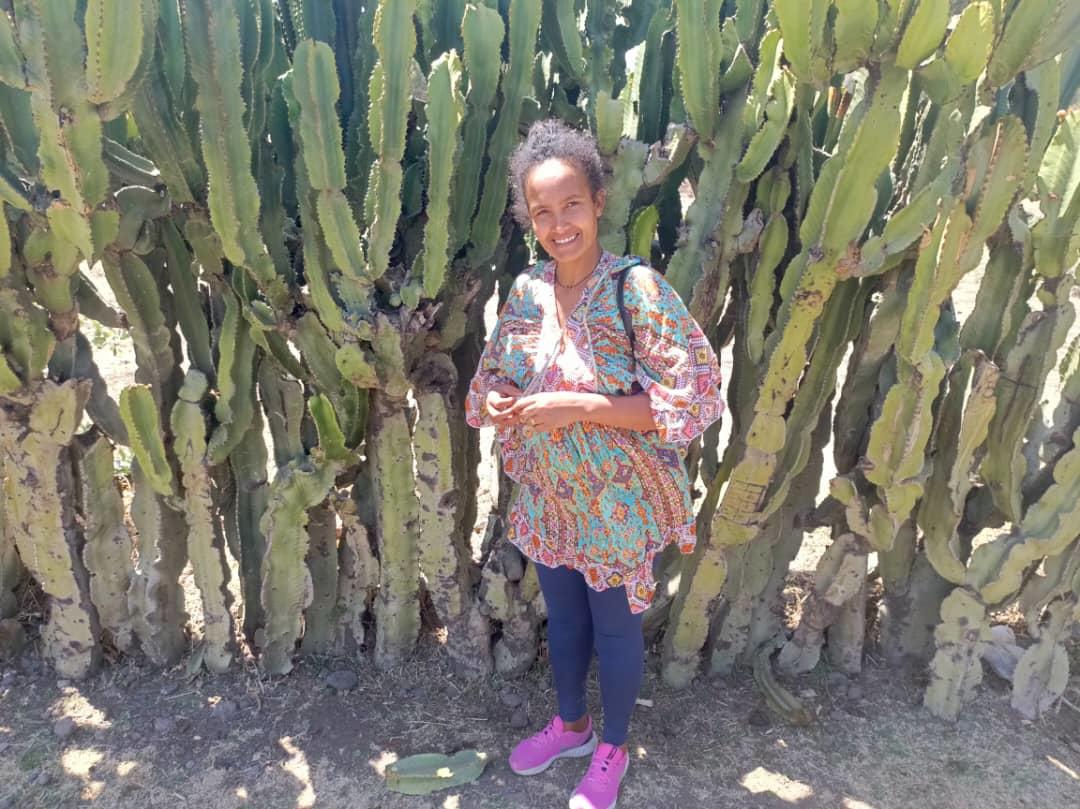
In Ethiopia, the fight against polio is both a public health challenge and a community-led journey. Despite past progress, variant poliovirus outbreaks have re-emerged, particularly in regions affected by conflict or limited access to routine health services. In response, the government—alongside UNICEF and partners—has intensified nationwide vaccination campaigns focused on reaching every last child.
In the village of Mekan-Endamekoni in Tigray, this mission is personal. For 34-year-old Azmera Berhe, it’s a commitment rooted in experience, resilience, and hope.
Photo: Bezawit, a team supervisor, during a door-to-door visit. © UNICEF Ethiopia
Learning, Leading, Protecting
In the calm village of Mekan-Endamekoni, 34-year-old Azmera Berhe eagerly awaited the arrival of the vaccination team. With her two children by her side, Azmera reflected on her journey as an active member of a mother’s group dedicated to health and well-being.
Azmera’s involvement in the mother’s group has been transformative. Established in May 2024, the group of 30 women meets weekly to discuss vital health topics such as immunization, antenatal care, institutional delivery, nutrition, hygiene, and sanitation.
“I have six children, and in the past, I delivered two of them at home due to a lack of awareness,” Azmera shared. “Thanks to the health extension workers who visited us and facilitated monthly conferences, I learned the importance of complete antenatal and postnatal care. Despite the challenges posed by COVID-19 and the conflict, which disrupted access to health services, I was striving to ensure my children received complete immunization.”
Azmera’s dedication to her children’s health is unwavering.
“My second youngest child was born at home during the conflict. He is autistic. I often wonder if this is related to the lack of access to health services at the time. However, all my other children have been immunized, and my husband and I always follow their vaccination schedule.”
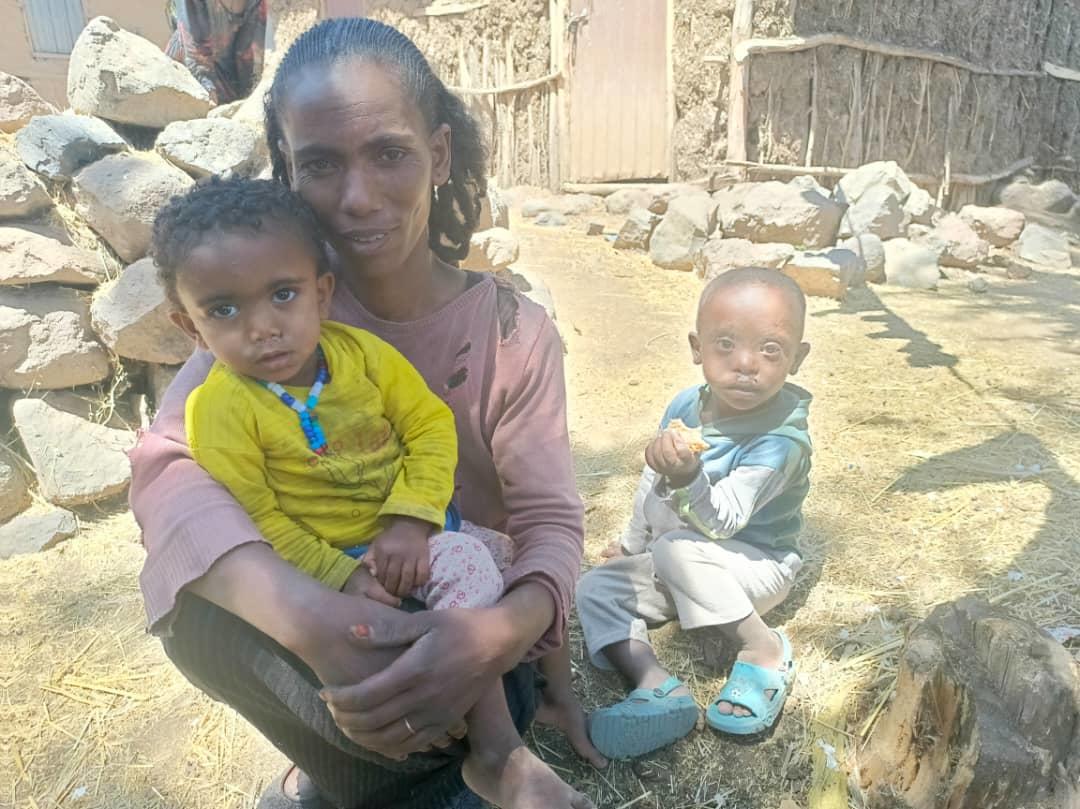
Photo: Azmera and her children expressing her gratefulness to the team. © UNICEF Ethiopia
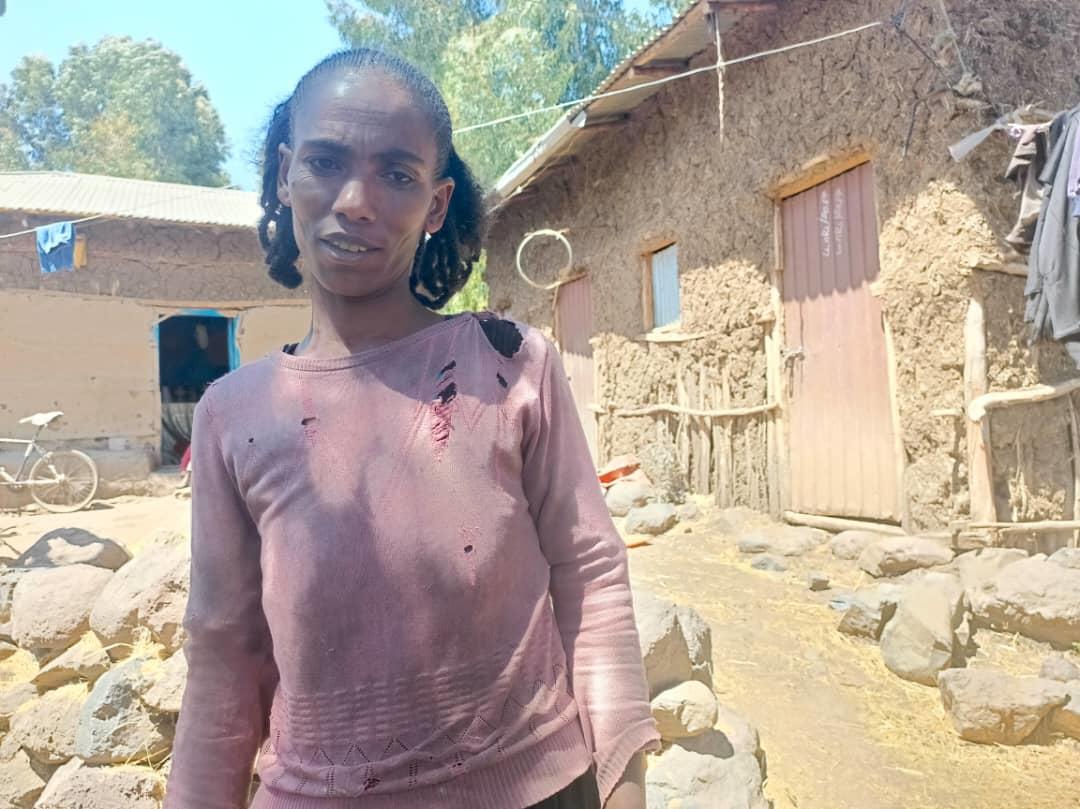
A Campaign That Reached Every Home
In February 2025, during Ethiopia’s intensified Supplementary Immunization Activity (SIA) for polio, two of Azmera’s children were vaccinated again. Thanks to the coordinated work of health extension workers (HEWs) and village leaders, caregivers like her were well-informed—from the definition of polio to campaign dates, eligible age groups, and how to recognize signs of Acute Flaccid Paralysis (AFP).
“The HEWs make sure we’re updated on everything. Their support gives us peace of mind,” Azmera shared.
This coordinated effort had tangible results. In Mekan-Endamekoni, monitors visited 20 households—and every child had been vaccinated. No one was missed. Azmera proudly added:
“People used to fear that vaccines might paralyze children. But now, everyone understands they protect us from exactly that.”
Community Power and Precise Planning
Bezawit, a team supervisor, celebrated the campaign’s success:
“We achieved 100% coverage, and no child was missed in this village. This success is due to the commitment of social mobilizers, effective advocacy sessions with religious leaders, and the dedication of the vaccination team.”
Sindu Tesfay, a health extension worker, described the preparations:
“We informed all stakeholders and oriented social mobilizers on their roles and key messages. Their engagement was crucial in informing caretakers and ensuring children were vaccinated.”
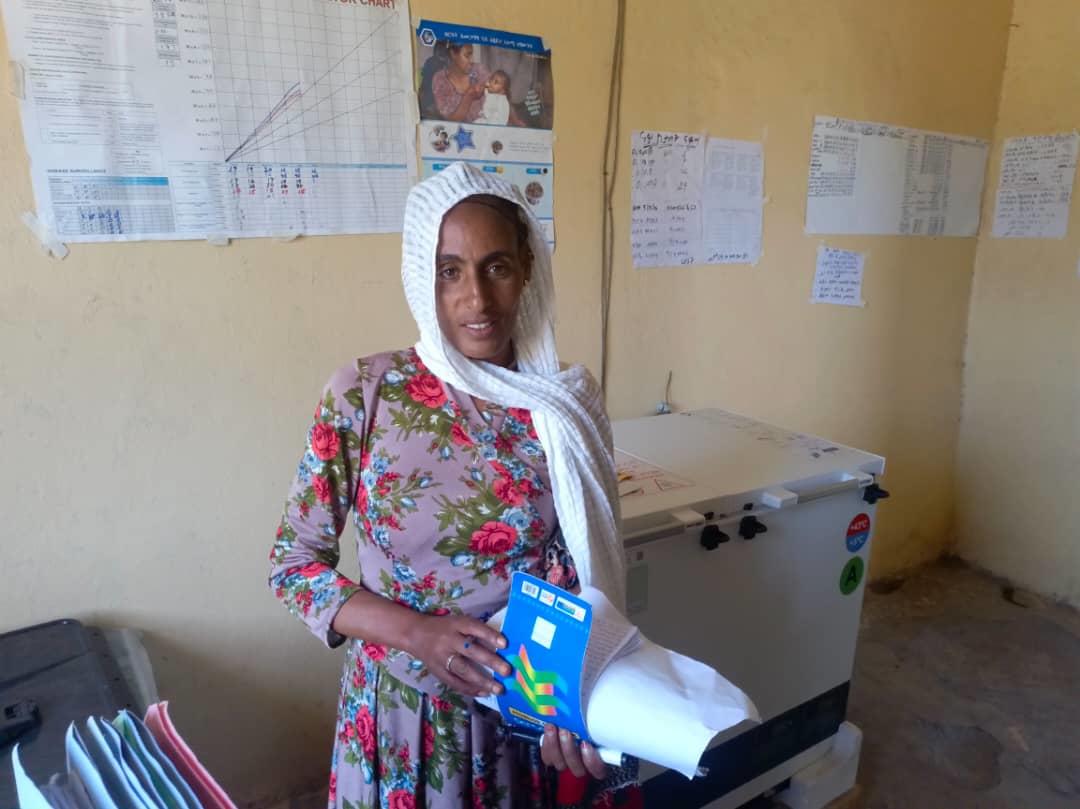
Photo: Sindu at the Health Post in her office after the morning visit. © UNICEF Ethiopia
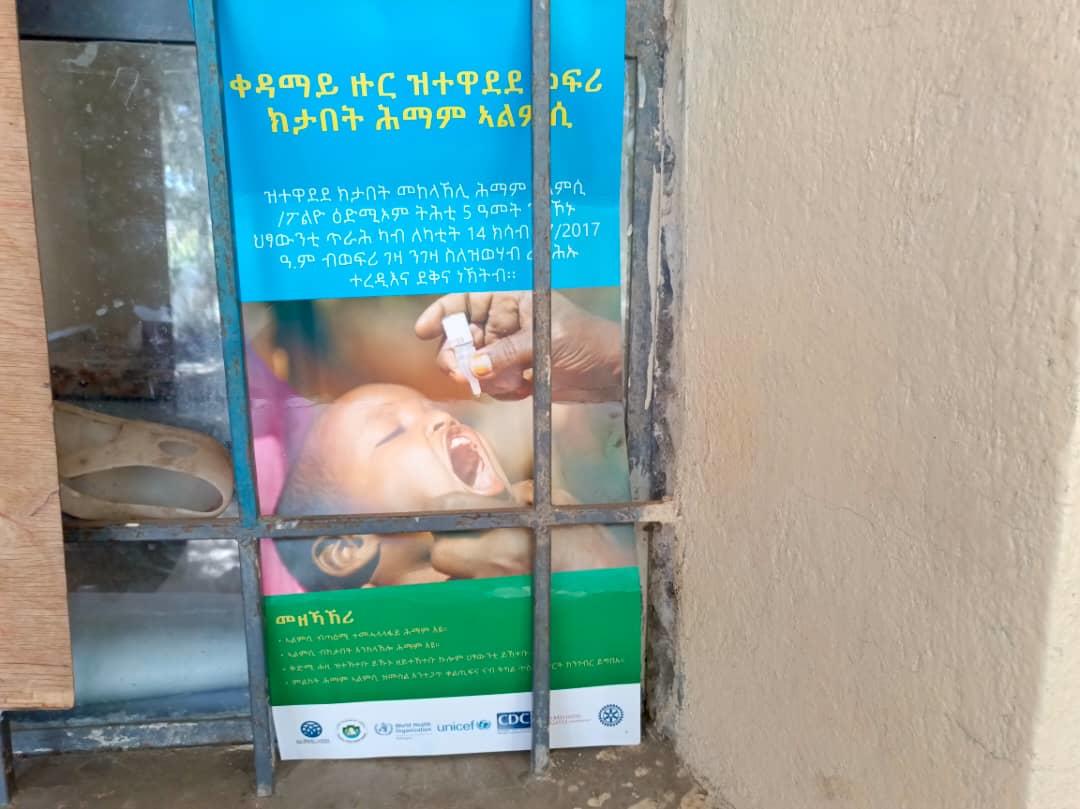
Extending the Campaign
The campaign’s success extended beyond Mekan Tabia. The woreda health office reported:
• 12,908 children vaccinated — 102% coverage, surpassing the target.
Despite challenges like vaccine supply delays, coordination between the woreda administration and sector bureaus allowed the campaign to start on time.
The head of the woreda health office noted:
“The coordination helped us mobilize local resources—including vehicles—to mitigate logistical challenges. We conducted advocacy and follow-up sessions with all stakeholders, including religious leaders, ahead of time. Daily reviews helped us compile reports, adjust daily plans, and address any issues promptly.”
A Health Advocate in Her Own Right
Azmera’s journey is a testament to what happens when women are empowered with information and access. Her transformation—from a mother giving birth at home to a health advocate guiding others—is mirrored across Ethiopia, where communities are stepping up to protect each other.
Her voice now joins a growing movement of caregivers, frontline workers, and local leaders proving that polio eradication is not just a health goal—it’s a shared responsibility.
Written by Moges Mekonnen, Social & Behavioral Change (SBC) Officer, UNICEF Tigray field Office, Mekelle. February 2025

